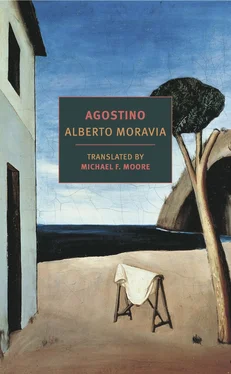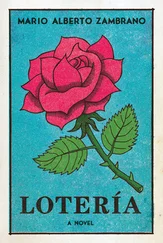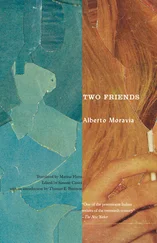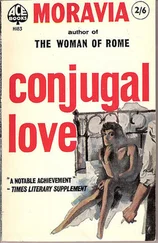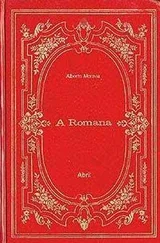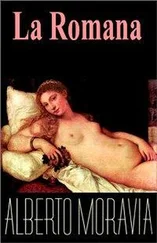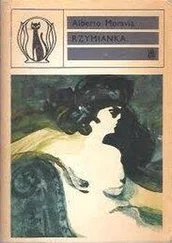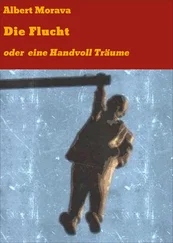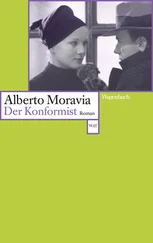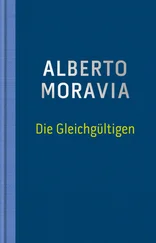Agostino went to the bed, opened the bag, removed the change purse, and took the twenty lire. Then, with the two bills in his fist, he threw himself on the cot prepared for him next to his mother’s bed. The mother had finished retouching her makeup. She stood up from the vanity and came near him. “What are you going to do now?”
“I’m going to read this book,” said Agostino, picking out at random an adventure novel from the bedside table and opening it to an illustration.
“Good boy, but remember to turn the light out before you fall asleep.” She made a few more preparations, moving around the room. Lying down with one arm under his neck, Agostino glanced at her. The confused sensation came to him that she had never been as beautiful as she was that night. Her white dress of shimmering silk threw into stunning relief the warm brown color of her skin. By an unconscious blossoming of her former self, she appeared at that moment to have regained all the sweet and serene majesty of her former demeanor, but with something more, intangible, a deep sensual aura of happiness. She was big, but she looked bigger than Agostino had ever seen her, big enough to fill the whole room. A white glow in the shadowy bedroom, she moved majestically, her head held high on a beautiful neck, her black eyes tranquil, intent beneath her untroubled brow. She turned off all the lights except the one on the bedside table and bent down to kiss her son. Agostino once again felt enveloped by a perfume he knew intimately, and brushing his lips against her neck he could not help but wonder whether the women, back at that house, were as beautiful or as sweetly perfumed.
Left to himself, Agostino waited about ten minutes for the mother to be far enough away. Then he got out of bed, switched off the lamp, and tiptoed to the next room. He groped around the desk by the window, opened the drawer, and stuffed his pockets with the coins and bills. After he had finished, he searched the drawer, long and wide, to make sure he hadn’t missed anything, and he left the room.
On the street he started running. Tortima lived on almost the opposite end of town, in a neighborhood of caulkers and sailors. Although the town was small, it was still quite a distance. He took dark roads near the pine grove, and walking quickly and occasionally breaking into a run, he went straight until he could see the masts popping up between the houses of the sailboats moored at the dock. Tortima’s house was right on the dock, past the iron drawbridge that crossed the canal to the harbor. By day it was an old, rundown area, with rows of dilapidated houses and shops along wide, deserted, sunlit piers, the stench of fish and tar, green oil-slicked water, motionless cranes, and barges filled with rubble. But at this hour, the night made it look like all the other places in town, and only a large sailboat, looming over the sidewalks with all its sides and masts, revealed the presence of harbor waters deeply embanked between the houses. It was a long brown sailboat. High up, between the riggings, you could see the stars shining. The whole mast and hull seemed to be barely moving, in silence, with the ebb and flow of the canal. Agostino crossed the bridge and headed toward the row of houses on the opposite side of the canal. The occasional streetlamp cast an uneven light on the facades of the dilapidated houses. Agostino stopped beneath an open, illuminated window through which you could hear the sound of voices and dishes, of people eating. Bringing a hand to his mouth, he intoned a loud whistle followed by two softer ones, the signal agreed on by the boys in the gang. Almost immediately someone appeared at the window.
“It’s me, Pisa,” Agostino said in a low timorous voice.
“I’m coming,” replied Tortima, for it was none other than him.
Tortima came outside with a face flushed by the wine he had drunk, still chewing on a morsel of something. “I came by so we could go to that house,” said Agostino. “I’ve got the money here, enough for both of us.” Tortima swallowed with a gulp and stared at him. “That house… on the far side of the piazza,” Agostino repeated, “where the women are.”
“Oh,” said Tortima, finally understanding, “you had second thoughts. Good boy, Pisa. I’ll be ready to come with you in a minute.” He hurried off and Agostino stayed in the street, walking up and down, his eyes trained on Tortima’s window. The older boy made him wait for a while and, when he reappeared, Agostino could hardly recognize him. He had always seen Tortima as an overgrown boy in rolled-up trousers, or half naked on the beach or in the water. Now he was gazing upon some young factory worker in his Sunday best, long pants and jacket, white collar, tie. He looked older also because of the pomade he had used to smooth his naturally curly hair. In his neat but plain clothes, he revealed to Agostino’s eyes for the first time his qualities as a stolid city dweller.
“Let’s get going,” said Tortima, setting off.
“Is this the right time?” asked Agostino, running alongside him and crossing the iron bridge with him.
“It’s always the right time there,” replied Tortima with a smile.
They took different roads from the ones Agostino had followed on his way there. The square was not very far, barely two streets over. “Have you ever been there?” asked Agostino.
“Not to that one, no.”
Tortima didn’t seem to be in any hurry and moved at his usual pace. “Right now they’ve just finished eating and no one will be there,” he explained. “It’s the perfect time.”
“Why?” asked Agostino.
“You have to ask? Because that way we can choose whoever we like.”
“But how many are there?”
“Well, about four or five.”
Agostino wanted to ask whether they were pretty but he kept his question to himself. “How are you supposed to act?” he asked. Tortima had already told him, but since he was still haunted by a sense of unreality he could not overcome, he needed to hear it reconfirmed.
“How are you supposed to act?” repeated Tortima. “It’s easy. You go inside, then they introduce themselves. You say: Good evening, ladies. You pretend to make small talk for a while, just to give yourself enough time to have a good look around. Then you choose one. It’s your first time, huh?”
“Well, actually—” Agostino began, somewhat embarrassed.
“Who do you think you’re fooling?” said Tortima with brutality. “Don’t think you can tell me this isn’t your first time. Tell those fibs to other people, not to me. But don’t worry,” he added, with an odd emphasis.
“What do you mean?”
“Don’t worry, I said. The woman knows what to do… let her take care of it.”
Agostino said nothing. The image conjured up by Tortima, of a woman who would introduce him to love, was pleasant and sweet and almost maternal. But despite this information, his disbelief persisted. “But… but… will they take me?” he asked, stopping and casting a glance at his own bare legs.
For a second the question seemed to embarrass Tortima. “Come on, let’s get moving,” he said with feigned indifference. “Once we’re there, we’ll find a way to get you in.”
From a dirt road they came out into the piazza. The whole square was dark except a corner where a streetlamp illuminated with its tranquil light a large patch of rough sandy terrain. In the sky, right above the square, you might say, a crescent moon hung, smoky and red, cut in two by a thin wisp of fog. Where the darkness was deepest, Agostino spied the house, which he recognized from the white shutters. They were all closed tight and not a single ray of light shone through. Tortima headed toward the house confidently. But when they reached the middle of the square, beneath the crescent moon, he said to Agostino, “Give me the money. It’s better if I keep it.”
Читать дальше
